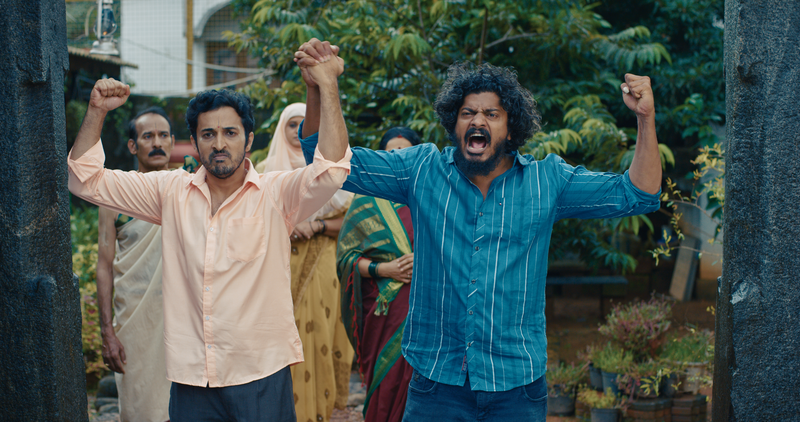
Kannada film Bera review: A true Karavali story lost in narration

On average, three films are released in Kannada every week. Most of them disappear in the din of multi-starrer and big-budget films. If any film manages to stay in theatres, it is probably because of the buzz they generate with teasers and trailers.
Bera, the debut venture of Vinu Balanja, is one such film, which created huge buzz through its intriguing rushes and teasers. ‘Bera’ (which means business in Tulu language), triggered curiosity, especially with social media likening the film to ‘The Kashmir Files’ and ‘The Kerala Story’ and terming it as ‘The Karavali story’. This was largely because the film is about politically motivated violence (both physical and mental) that has become a phenomenon in coastal Karnataka.
However, it is truly the Karavali story, as it is set completely in a small town in Dakshina Kannada district and the director employs local Kalladka dialect to offer the native touch.
Also read: Adipurush review: A flat retelling of India’s most famous epic, only Ravana roars
Untread path
Few filmmakers in Kannada have attempted to address the issue of communalism, which is slowly spreading its tentacles in once communally harmonious Karnataka, after the steady growth of right-wing elements and outlets. Filmmakers such as M S Sathyu and Girish Kasaravalli have touched upon the issue, though peripherally, but sensitively in their films.
At the same time, it is equally difficult to visualise this sensitive issue — communalism. A minor slip by the filmmaker would turn the film into a ‘propagandist’ one and if his intention is to sensationalise, the result will be ‘The Kashmir Files’ and ‘The Kerala Story’.
It is here Bera stands apart, despite its inherent flaws. Though Vinu Balanja tries to tackle an unexplored concept, he thoroughly fails in visualising the content. The theme had solid potential to become a pan-Indian film, but the director lost an opportunity, probably succumbing to commercial pressure.
Inspiration: True incidents
The story of Bera with the tagline ‘Merchant of Death’ is based on true incidents that occurred in Dakshina Kannada and Udupi districts in recent times. The narrative is woven around two antique pillars of the Kalladka museum.
Also read: Sirf Ek Bandaa Kaafi Hai review: A riveting courtroom drama about justice for a rape victim
Kalladka town in Bantwal taluk of Dakshina Kannada has been the centre of communal clashes in recent days. In the beginning, the director takes the audience to the land where one community is baying for the blood of another.
The film chronicles the life of Salim and Vishnu, the two protagonists, who take on the responsibility of protecting the harmonious relationship of two communities in the region and their fight to retain the pillars in the museum premises, while the other community wants it to be removed at any cost.
Overstretching the plot
Balanja, who has moved from the small screen to the big screen, fails to understand the time constraints in narrating a story and stretches the plot. The film could have been trimmed, had the editor understood the focus of the film. The director also fails to exploit the talent of the artistes and because of this lacuna, all characters look like caricatures and mouth-lengthy dialogues standing around like zombies sans emotions. In his enthusiasm to communicate his ideas at one go, the director loses focus and treats the content like a tele-serial.
Amateurish treatment
There are times when the film’s cinematographer Rajashekar and music composer Manikanth Kadri could have saved the film from slipping further through their creative efforts, but it ends up as a run-of-the-mill product.
Bera turns out to be a preachy and verbose film.

